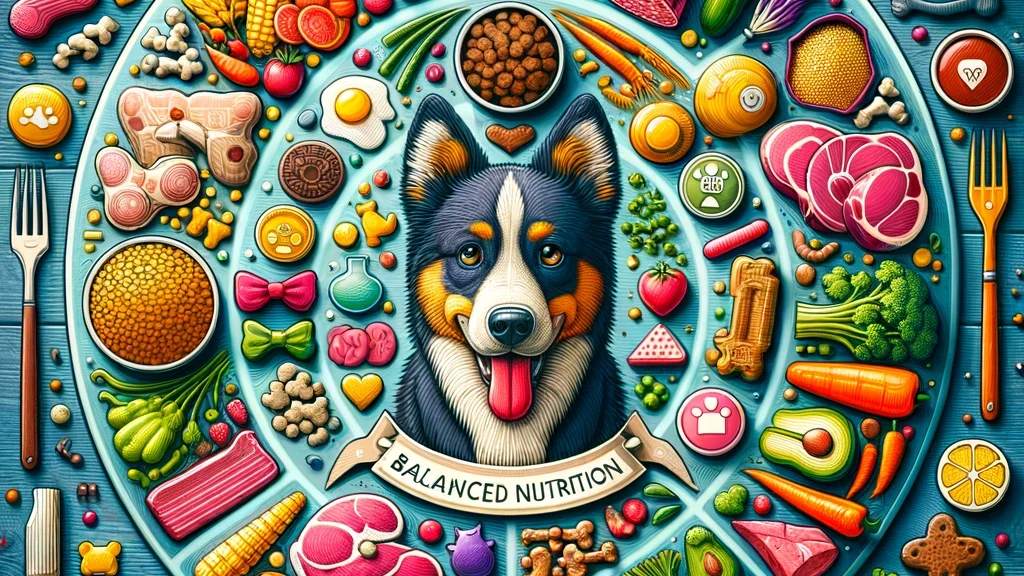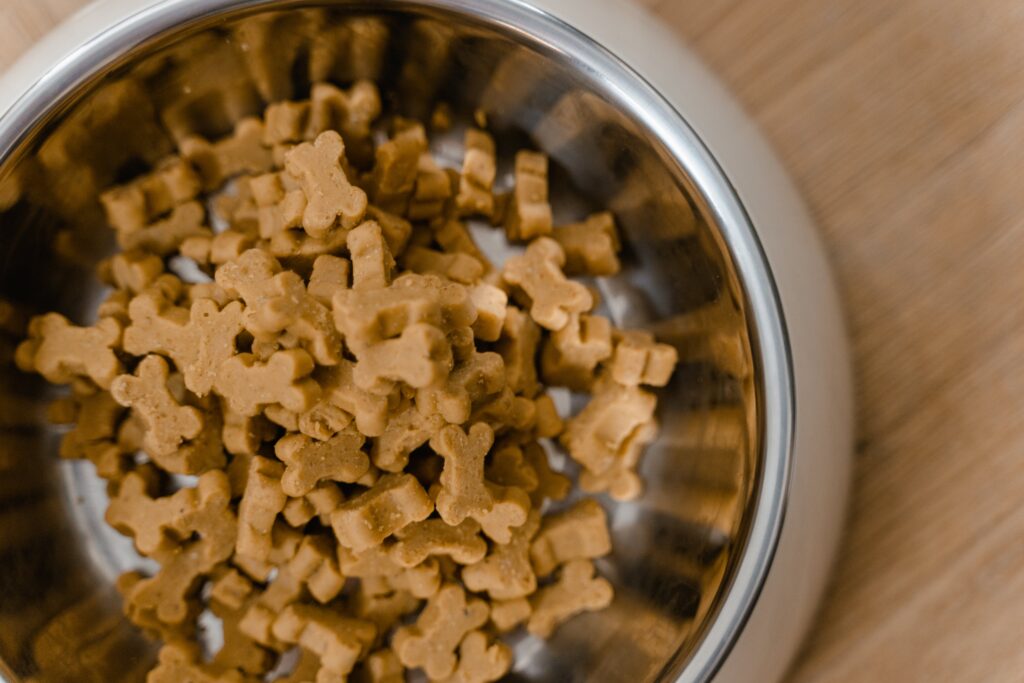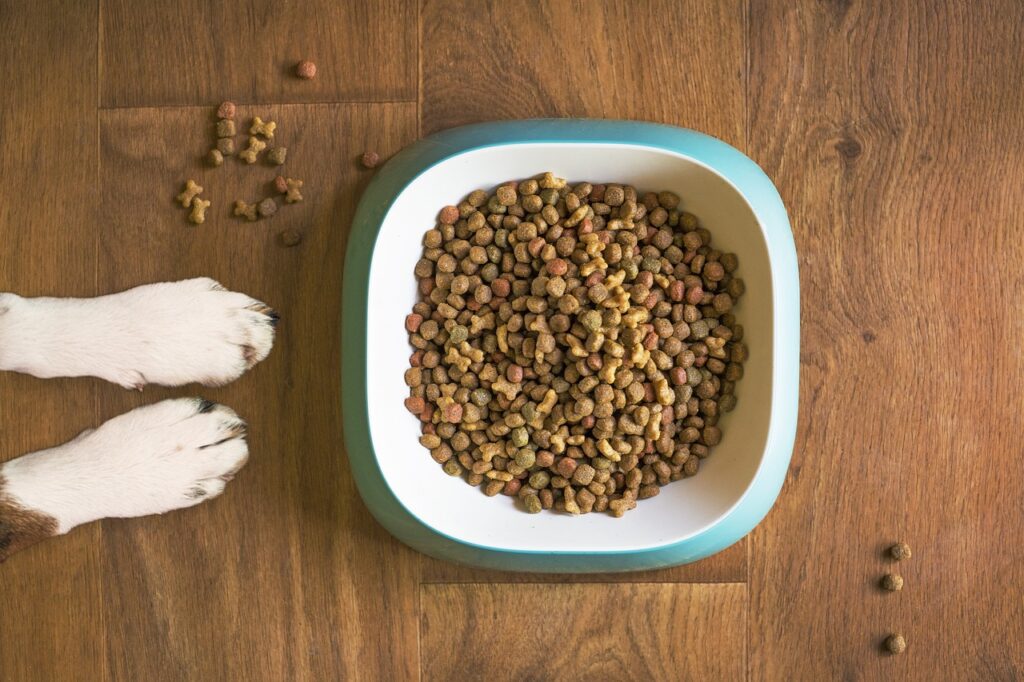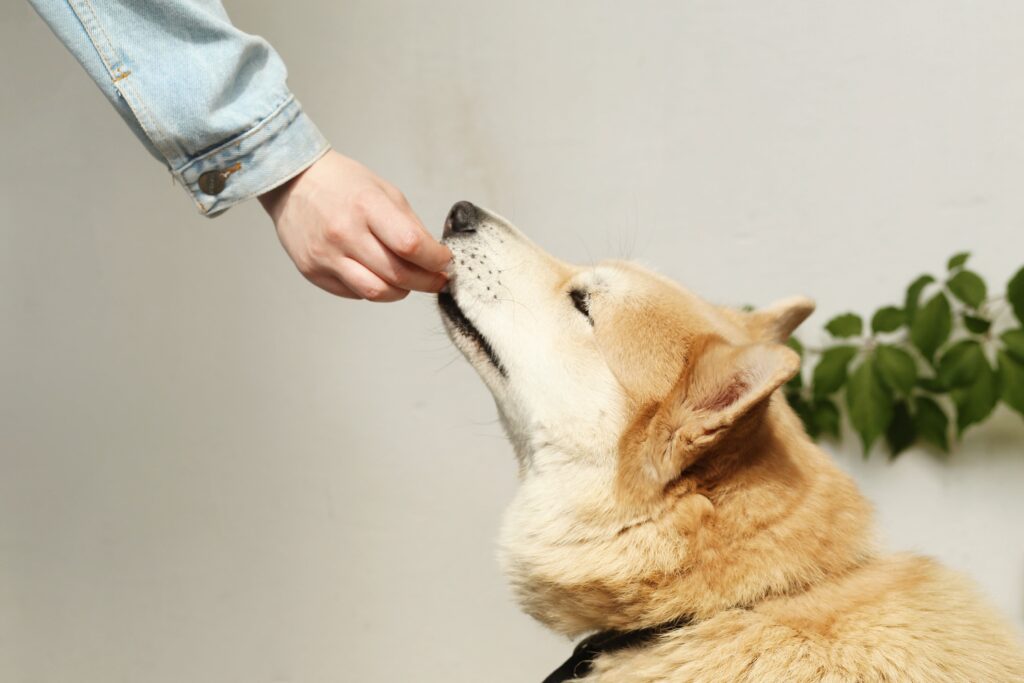
Ensuring proper Dog Nutrition for your furry friend is not just about feeding them; it's about providing them with a balanced diet that will enhance their overall health and happiness. This post delves into the importance of a well-balanced diet, how often to feed your dog, how to choose the right food, how to prevent obesity, and many other essential topics about dog nutrition.
List
The Importance of Balanced Dog Nutrition
Maintaining balanced dog nutrition is pivotal in keeping your furry friend in the prime of their health. Proper nutrition fuels their daily activities and ensures they are vivacious and sprightly. The key to balanced nutrition lies in providing your pet with the correct proportions of protein, carbs, fats, vitamins, and minerals.
Protein plays a crucial role in muscle growth and repair. It also aids in keeping the immune system strong and robust. Carbohydrates act as a quick energy source, fueling your dog's playful nature. Fats, although misinterpreted as unhealthy, are indeed essential in a dog's diet. They provide fatty acids necessary for a healthy coat and skin and aid in the absorption of vitamins.
Vitamins and minerals, too, hold substantial significance. They are the spark plugs of your dog's body, driving the biochemical reactions necessary for growth, digestion, and immune function. A deficiency or excess of these nutrients can lead to health problems.
The right combination of these nutrients ensures your dog stays healthy and active. It also aids in maintaining a healthy skin and coat, sturdy bones and teeth, and a well-functioning digestive system. Achieving this balance, however, requires careful consideration of the food choices made for your dog.
Therefore, when it comes to your dog's nutrition, achieving a balance is crucial. It is the difference between a vibrant, healthy dog and one that's susceptible to illness and disease. As a dog owner, it's your responsibility to ensure that your dog gets a well-balanced, nutritious diet for optimal health and vitality.

Essential Nutrients in Dog's Diet
Understanding the fundamental building blocks of your dog's diet is key to ensuring proper nutrition. Proteins, a significant component of a dog's diet, are essential for growth, development, and tissue repair. They also support a robust immune system, keeping your dog healthy and disease-free.
On the other hand, carbohydrates offer a quick source of energy, fueling your dog's daily activities. While dogs don't necessarily need carbs in their diet, good quality carbohydrates can provide useful nutrients and fiber.
Fats often get a bad reputation, but they are crucial for your dog’s health. They provide essential fatty acids, which are not produced by the body, and are necessary for brain function, skin health, and energy provision. Additionally, fats facilitate the absorption of fat-soluble vitamins, A, D, E, and K.
Vitamins and minerals, while required in smaller quantities, are no less critical. They support various biological functions, including metabolism, digestion, and immunity. They help with bone formation, blood coagulation, and maintaining optimal nerve function.
Therefore, a dog's diet needs to be carefully crafted with all these elements in appropriate proportions. It is also crucial to remember that the requirements for these nutrients can vary based on factors like age, breed, health status, and life stage of your dog. Stay informed about these nutritional necessities, but also consider your pet's individual needs for a well-rounded, healthful diet.
How Often to Feed a Dog and Why
Determining the right feeding schedule for your dog largely depends on various factors, such as their age, overall health, and activity level. The eating habits of puppies are quite different from those of adult dogs. Young puppies tend to have a fast metabolism and require several small meals a day. Generally, feeding them 3 to 4 times daily is ideal to support their growth and development.
As your puppy grows and transitions into adulthood, their metabolism will slow down. At this point, you can adjust their feeding schedule to twice a day. It's also important to note that highly active dogs may require more frequent meals to sustain their energy levels.
Regardless of their age or lifestyle, dogs thrive on consistency. Therefore, try to feed your pet at the same times each day. This not only helps to regulate their digestive system but also gives them a sense of routine and security.
Remember, overfeeding can lead to obesity, so it's crucial to monitor your dog's weight and adjust their portions as needed. Moreover, regular vet visits can help ensure that you're feeding your dog the right amount of food and keeping them in good health. The vet can also provide further advice on dietary changes as your dog ages or if they have specific health conditions.

Choosing the Correct Food for Your Dog
Navigating the world of dog food can be a daunting task given the plethora of options available on the market. Nevertheless, a key to providing optimal nutrition for your furry friend involves making an informed decision on the type of food that aligns with their specific needs. This includes considerations like their age, breed, activity level, and current health conditions.
High-quality dog food that lists meat, vegetables, and grains as its primary ingredients should always be the go-to choice. This assures that your dog receives the essential nutrients it requires for robust health. Ensure you steer clear of dog foods that contain artificial preservatives, colors, and flavors as these could be detrimental to your pet's health.
When selecting food for your puppy, choose a brand that is specifically formulated for puppies. These foods typically have a higher protein content and other essential nutrients to support their growth and development. Senior dogs, on the other hand, may benefit from diets with lower calories but higher in fiber, to help manage weight and improve gastrointestinal health.
Some dogs may also have specific dietary needs based on their breed. Large breed dogs, for example, can benefit from certain diets that promote joint health. On the contrary, smaller breeds may require diets with smaller kibble sizes for easier consumption.
In the event your dog has a specific health condition, like diabetes or food allergies, you may need to opt for a special diet. In these cases, it's best to consult with a veterinarian who can guide you towards a diet that helps manage your pet's condition while still meeting their nutritional needs.
Remember, the food you choose plays a critical role in maintaining your dog's health, weight, and overall well-being. Make sure you're making a choice that's in the best interest of your canine companion.

Preventing Obesity in Dogs
Overindulgence in food and minimal physical activity can result in obesity in dogs, a concern that is increasingly becoming prevalent among pet owners. Maintaining a consistent and moderate diet for your dog along with a regular exercise regime can help prevent this health issue. You should ensure that treats are not given excessively and always keep an eye on your dog's weight. A well-structured feeding schedule, as discussed earlier, can help control overfeeding. Also, portion control is a key aspect in preventing obesity. While it may be tempting to spoil your furry friend with extra helpings, you must resist the urge to overfeed.
An obese dog is at risk of developing severe health complications such as diabetes, heart diseases, and joint problems. They may also experience difficulty in performing basic activities such as walking and running, leading to a reduced quality of life. Therefore, preventing obesity is not just about maintaining a suitable weight; it's about enhancing the overall well-being of your pet.
Physical activity plays a significant role in managing a dog's weight. Ensure your dog gets regular exercise, whether it's a daily walk, playtime in the backyard, or scheduled workouts. This will not only help keep your dog's weight in check, but it also contributes to their physical health and mental stimulation.
It's also a good idea to schedule regular vet check-ups to monitor your dog's weight and make any necessary adjustments to their diet or exercise regime. A vet can provide valuable guidance on managing your dog's weight effectively while ensuring they receive the necessary nutrition. The goal should always be to promote a healthy lifestyle for your dog, free from the risks associated with obesity.
Raw Food Diet vs. Commercial Dog Food
The debate between raw food diets and commercial dog food is a recurring theme among pet owners. Advocates of a raw food diet, consisting of uncooked meats, fruits, and vegetables, argue that this approach mirrors a dog's natural, ancestral diet. It's free from preservatives, fillers, and additives, which some commercial dog foods may contain. However, a raw food diet requires careful planning and preparation to ensure it meets all the nutritional needs of your dog. There's also a risk of bacterial contamination with raw meats, which can lead to serious health issues if not properly handled and stored.
Commercial dog food, in contrast, offers convenience and ease. It's formulated to meet the nutritional standards established by the Association of American Feed Control Officials, ensuring your pet gets a well-balanced diet. The quality of commercial dog food can, however, vary significantly from brand to brand. Some may contain high-quality ingredients, while others may resort to fillers, by-products, and artificial additives.
Given the pros and cons of both diets, it's essential to make an informed decision that suits your dog's individual needs and your lifestyle. When choosing commercial food, select a high-quality brand that lists whole meats, vegetables, and grains as its primary ingredients. If you prefer a raw diet, ensure you're addressing all nutritional needs and are cautious about food handling and hygiene. Regardless of your choice, consulting with a veterinarian can provide valuable insight into the most suitable diet for your dog. They can consider your dog's age, breed, health status, and activity levels to recommend a diet that ensures optimal health and vitality.

Importance of Regular Vet Check-ups
Scheduling routine veterinary visits is a vital component of your dog's overall health and nutrition management. Veterinarians are trained professionals who can thoroughly evaluate your dog's health status. These routine evaluations help to catch any potential health concerns early, enabling prompt treatment and, often, better outcomes.
In the context of nutrition, a vet can provide tailored advice on the most suitable diet plan for your dog, considering their specific needs. These dietary recommendations will take into account factors such as your dog's age, breed, activity level, and current health condition. For instance, a growing puppy's nutritional needs would be quite different from an older dog, and a vet can guide you accordingly.
Moreover, a vet can help you understand your dog's body condition and whether they are maintaining an ideal weight. This is important because being overweight or underweight can lead to serious health concerns. During these regular check-ups, your vet can also advise on portion sizes, feeding schedules, and suitable food choices to help your dog maintain a healthy weight.
Routine vet visits also provide an opportunity for you to discuss any observed changes in your dog's eating habits, energy levels, or behavior, which could be indicative of underlying health issues. Moreover, a vet can guide you on whether your dog requires any dietary supplements to meet their nutritional needs, ensuring they are getting a well-rounded diet.
Remember, your dog can't tell you when they're feeling unwell, so these regular check-ups are a proactive measure to ensure their optimal health and well-being. Keep in mind that when it comes to your dog's health, an ounce of prevention is worth a pound of cure.
The Role of Supplements in Dog Nutrition
Supplements can serve as beneficial additions to your dog's diet under specific circumstances, though a well-balanced, nutritious diet should typically cater to all of your dog's nutritional needs. For instance, as dogs age, they may benefit from joint supplements to support their mobility and comfort. Similarly, supplements rich in omega fatty acids can boost the health of your dog's skin and coat, giving it a lustrous shine and soft feel.
However, it is vital to approach the use of supplements with caution. The indiscriminate use of supplements without understanding their purpose and potential side effects could have unintended consequences. Therefore, before integrating any supplements into your dog's diet, a consultation with a veterinarian is strongly advised.
A qualified vet can assess your dog's health, dietary habits, and specific needs to recommend suitable supplements, if necessary. They can guide you on the correct dosage and duration for these supplements, ensuring they complement your dog's diet without causing an imbalance in their nutrition.
Moreover, veterinarians can inform you of any potential interactions between supplements and your dog's current diet or medications. They can also monitor your dog's response to the supplements and make necessary adjustments to optimize their benefits.
Remember, the goal is to enhance your dog's health and vitality through comprehensive nutrition. While supplements can help in achieving this, they should not replace a balanced diet and should always be used under professional guidance. Through informed decisions and responsible practices, you can ensure that your dog's nutrition supports a long, healthy, and happy life.
